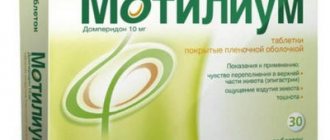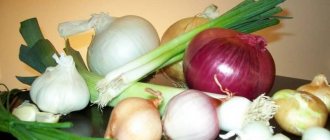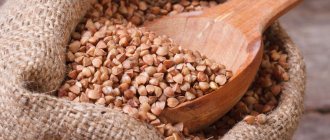It is difficult to argue with the statement that bread in the diet is everything to us.
Salads, first courses, snacks, and deli meats lose their appeal without bread, and, according to most, the feeling of satiety does not come without bread. The modern assortment of bread has been supplemented with previously unknown varieties: today in any supermarket you can buy not only white and black bread, but also exotic varieties: chibatta, pita bread, pita bread, and even pretzel.
In fact, any bread products are classified as fast carbohydrates, the consumption of which is not very desirable for people who are overweight and have chronic diseases . And in the presence of chronic gastritis, bread must be chosen carefully and consumed in limited quantities.
Recommendations from nutritionists and gastroenterologists
There are several rules for eating bread for patients with gastritis.
Rule one, general
For any form of gastritis, it is forbidden to eat fresh bread. Unfortunately, a warm, aromatic slice will not do you any good, and may provoke an aggravation. Let's explain why.
In a freshly baked product, the fermentation process has already stopped, but contact with gastric juice perfectly restores it. The only difference is that fermentation occurs in your not very healthy stomach. As a result, the mucous membrane suffers, digestion becomes difficult, stagnation forms in the stomach, and gas formation increases. Symptomatically, these processes are manifested by bloating, heaviness, and even epigastric pain.
Rule two, for patients with high acidity of gastric juice
Increased secretion of hydrochloric acid causes unpleasant symptoms - heartburn, belching, burning and pain in the stomach. If the patient follows a diet, the painful symptoms can be calmed down. Freshly baked and rich bread is contraindicated for such patients, as it activates the secretory function. An alternative is day-old bread made from medium-grade wheat flour. Wheat crackers, bread and yeast-free products are not prohibited.
Rule three, for patients with reduced secretion of gastric juice
The main problem in such patients is slow digestion of food. Stagnation occurs due to a pronounced lack of secretion. Doctors do not recommend eating fresh bread and baked goods, because with low acidity the stomach is not able to digest heavy yeast products. Stagnation occurs, which causes heaviness, pain, and constipation. The mucous membrane suffers due to increased load, which it is not able to cope with.
Rule four, for patients with normal acidity
It would seem that the acidity is normal, there should be no problems with digesting the bread. However, what matters here is the traumatic effect on the inflamed mucosa. The rules for eating bread with normal secretion are similar to the diet with increased secretion. That is, you need to eat in such a way as not to provoke increased production of hydrochloric acid. Pastries and freshly baked bread are prohibited.
Conclusion. For all types of gastritis, fresh bread, baked goods, and wholemeal bread are not recommended.
Now let's talk about the most popular types of bread, considering that we will use them on the second day after baking, or in dried form.
Eating bread for acute gastritis
When an acute process develops, the first days are fasting, after two days they eat exclusively liquid food in the form of jelly, porridge and broth. After a week, foods are selectively added to the diet. During this period, you need to be careful with your stomach and not eat foods that inflame the mucous membrane.
You should not consume fresh bread, which develops bloating and damage to the mucous membrane, increasing the secretion of gastric acid. For a similar reason, rich foods are excluded: pies, buns, cookies.
Gastritis of the stomach
Black
Black bread is usually called bread made from rye flour. This also includes a product made from two types of flour - rye and wheat. The ratio of ingredients may be different, the biological usefulness of the product depends on this.
Any black bread is healthy, it contains microelements, a large amount of fiber, vitamins, and valuable amino acids. However, a pure product made from rye flour has high acidity, up to 12% . The fiber contained in black bread is needed by the intestines, and is not at all useful to a sick stomach due to its traumatic effect.
Even a healthy stomach has difficulty digesting a 100% rye product - it takes about 4 hours. The optimal type of black bread, containing only 80% rye and 20% wheat, is digested a little faster, in 3.3 hours. But for patients, even mixed rye-wheat bread is a heavy and not recommended food. It increases acidity, is digested slowly, and injures the mucous membrane.
Conclusion: rye products are not recommended for high and normal acidity. In normal conditions, they are allowed in the stage of stable remission in small quantities - 30 grams 2 - 3 times a week in dried form.
White
If black bread is an original Russian product, then history attributes white bread to the Egyptians. It was they who first grew wheat and baked the well-known loaf, which is present in every home today. How can they not scold him because of his high carbohydrate content! But they forget about the nutritional value. Although white bread contains everything – vitamins, amino acids, and microelements. There is less fiber than in black, acidity is 7%, in sliced loaf it is 3% .
Yeasted wheat bread takes 3 hours to digest, the yeast-free version takes 2.5. Do you feel how the chances of wheat bread increasing to become mandatory in the diet of a patient with gastritis? So it is - wheat bread is allowed for gastritis. True, not warm, but yesterday’s, remember that.
When acidity is low
If there is insufficient gastric acid during an exacerbation of gastritis, doctors advise excluding baked goods from the diet. This is due to the presence of carbohydrates and dietary fiber, which negatively affect the walls of the stomach, after which the system cannot function positively. After the acidity is restored, you can add 2nd grade wheat bread to the table, but only a few pieces. If the body is prone to diarrhea, it is better to eat white bread stale or make croutons from it.
Varieties without yeast
Is there bread without yeast? Happens. This is lavash and its varieties. All other varieties, if not prepared with the addition of yeast, are based on a leaven that “works” in the dough according to the same fermentation principle, no doubt. It is generally impossible to “raise” rye flour without yeast or leaven; with wheat flour the situation is a little simpler. However, the presence of porosity in the product is an accurate confirmation of the presence of fermentation processes. Therefore, a fashionable yeast-free product is a good advertising campaign, if it is not lavash.
The nutritional value of sourdough products is close to yeast varieties, so it is not of fundamental importance. So the choice of product is a matter of your taste preferences. And we talked about the rules of nutrition for gastritis above.
Whole and crushed grains
Any grain bread contains the following ingredients:
- Whole or crushed cereal grains. This is not necessarily rye or wheat; barley, rice, corn and other grains are successfully used in recipes.
- Yeast. They can be classic, as well as dry and liquid.
- A mixture of water and milk.
- Salt.
An interesting fact is that a real grain product cannot be white and fluffy - if the recipe contains unrefined grains, the bread has a dense consistency and a grayish color. And on fluffy white buns, grains can only be present as a topping.
Whole and crushed grains are harmful for gastritis. They injure the mucous membrane, take a long time to digest, and increase acidity. Therefore, patients with gastritis should avoid the shelf with grain baked goods.
Is toast good for breakfast?
The beneficial and harmful properties of toast depend on the type of bread. Care should be taken when selecting baked goods for frying in the device. Especially if you plan to eat dry slices for breakfast.
In the morning, the stomach is completely empty, which means it is susceptible to junk food. White bread releases acrylamide when toasted. If such food is abused, the component can accumulate, which leads to the risk of the formation of cancer cells.
Toasting too much creates a buildup of carcinogens on the crust of the toaster slice. It is harmful to consume this product on an empty stomach. To get the most out of your breakfast, it is better to dry the grain product at a minimum temperature.
Bran
Famous Moscow nutritionist A.V.
Kovalkov believes that bran is essential in the diet. In his lectures, he says that bran is not digested, but only transits through the digestive tract, giving away all the valuable substances and taking away all the toxins. Bran is also called a “brush for the intestines”, due to its ability to enhance peristalsis. Yeast acts in the same way in bread, so bran baking is not advisable for patients with gastritis. But there is an alternative: if you pour milk over the bran for half an hour, they will lose their “scratching” properties. Use them in this form for your health, you will get all the nutrients, and your intestines will work better.
Important! With increased secretion, bran soaked in milk helps reduce acidity. Allowed for gastritis are oat and wheat bran, the rest are prohibited.
About crackers and crackers
It is crackers that are recommended for gastritis as bread products. True, not beer croutons, which are generously sprinkled with salt and spices, but the most ordinary ones, wheat or rye-wheat without additives.
If the acidity is low or zero, only wheat products are allowed. Rye - excluded.
The main advantages of crackers compared to bread products are as follows:
- Low humidity.
- Significantly reduced calorie content.
- Easy to digest product structure.
To eliminate traumatic properties, it is recommended to soak crackers and crackers for gastritis, just like bran. You can pour them with broth or yogurt, or even add them to porridge - you will retain the nutritional value of the product, and your stomach will easily cope with them.
Kinds
Depending on the type of grain crop used for the manufacture of products, the following products are distinguished:
- rye bread is the most popular in a healthy diet;
- rice - suitable for people with skin problems and kidney diseases;
- wheat ones are used for problems with the stomach and intestines;
- Buckwheat is suitable for those with a tendency to be overweight, as well as for anemia and diabetes;
- combined include several types of grain, such as wheat and rye;
- multigrain is ideal for everyone.
Nowadays you can find products from different manufacturers in stores. It is important to adhere to the rules of choice in order to purchase high-quality bread that is suitable for medicinal purposes.
Bread
Not all types of bread are suitable for patients with gastritis.
Barley and wheat are allowed, rye is contraindicated. Rice, buckwheat, and corn bread can be consumed, but in limited quantities, no more than 100 grams per day and in soaked form. Variations - breads with filling and various additives are best excluded. The best choice is dietary wheat bread. When purchasing, pay attention to the composition of the product - there should be no preservatives or stabilizers that harm a sore stomach. The shelf life of the bread is also important - for a patient with gastritis, those that are stored for 6 to 12 months are suitable. These products are better crushed, so they will not injure the mucous membrane.
If you choose between bread rolls and wheat crackers, we would recommend crackers.
Harm
Not everyone knows about the technology for manufacturing quality products, so they buy bread made using extrusion, that is, standard baking. This product contains a lot of calories, so it should not be consumed if you have problems with digestion or excess weight.
The composition should not contain yeast, premium flour, starch or other additives. Harm occurs from unlimited use of this product. The benefits will be minimal, so you won’t be able to improve your health. You need to know exactly which products are suitable for your body.
Harm will occur if the drinking regime is not followed. Digestion and absorption of bread is ensured by drinking 2 liters of water per day. With a lack of fluid, digestive problems and constipation are observed. Some people develop allergies after consuming the product. This is due to intolerance to the components of the product. You should not eat them if itching, redness or rash appears on the skin.
Age restrictions also apply. The product should not be consumed by children under 3 years of age, as well as by elderly people over 65 years of age, otherwise the bread will be difficult to digest. In the absence of contraindications, the product can be included in the daily diet.
Bread maker - assistant
Bread baked with one’s own hands is the pride of any housewife. Of course, it has nothing in common with buns from a Russian oven, but you know exactly what the product is made from. Many families have modern bread machines, and supporters of a healthy lifestyle confidently use them.
Does a patient with gastritis need homemade bread? Needed. It must be prepared from premium wheat flour, and the dough must be kneaded with kefir. But it cannot be consumed warm. When receiving a fresh loaf from the bread machine, cut it into pieces and dry it for 12 hours. Afterwards, eat to your heart’s content, not forgetting to soak it first.
By the way, replace the sugar in the recipe with honey - the nutritional value will increase.
How about eating a sandwich with butter?
A person needs butter in itself for gastritis. It should be consumed in moderation, no more than 40 grams per day, taking into account its addition to cereals, soups, and vegetable dishes. A traditional morning sandwich with butter is allowed only in stable remission and is not at all recommended in case of increased secretion - heartburn is guaranteed.
When buying butter, buy only a high-quality product with a fat content of 72.5-82.5 percent. This will be real oil, rich in phospholipids, vitamin A and other valuable components. Do not take spread, margarine, or soft sandwich butter - there is more harm than good.
We have looked at all the nuances of eating bread for different types of gastritis and we think our advice will be useful for you. Don’t risk your health - refuse freshly baked, grain and rye bread, replacing it with crackers or toast.










